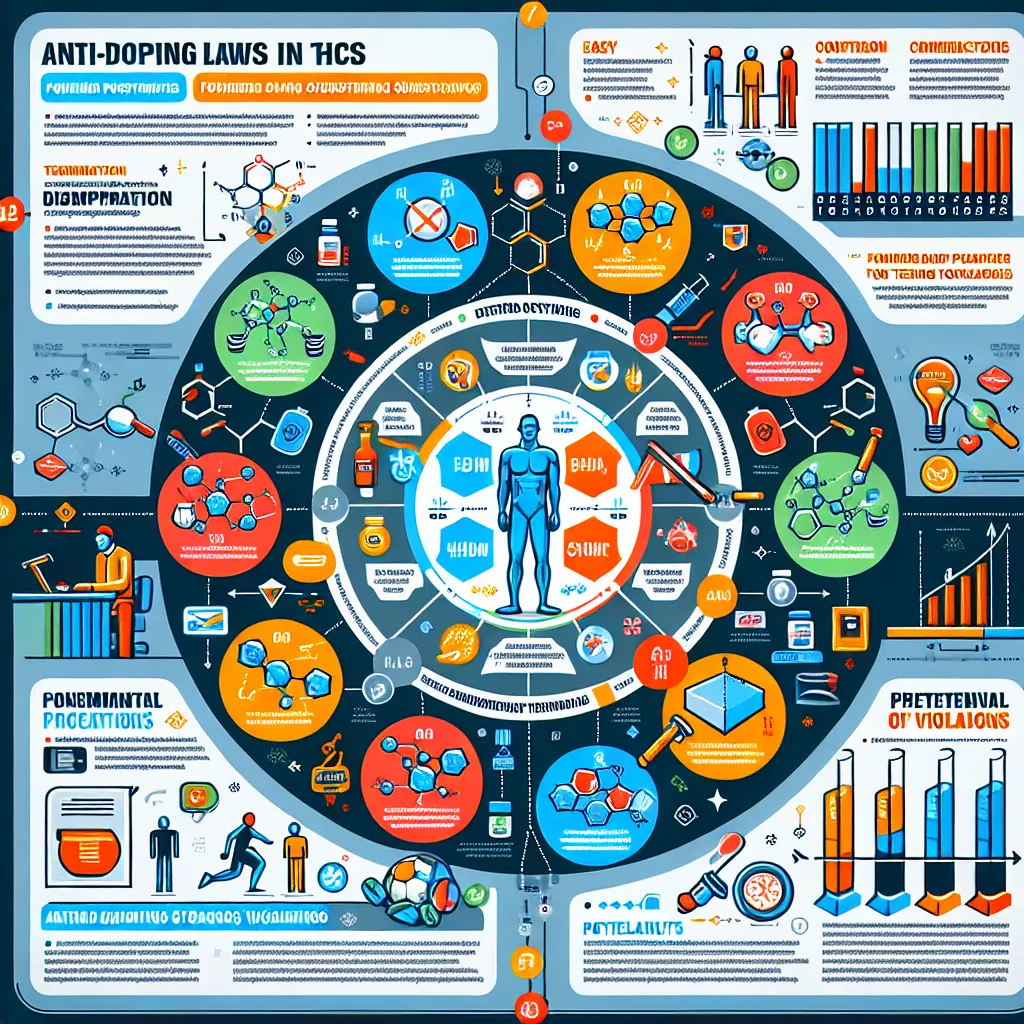Anti-doping regulations are crucial in maintaining fairness and integrity in sports. As an IELTS candidate, understanding this topic can significantly enhance your vocabulary and help you tackle various sections of the test. Let’s dive into the world of anti-doping regulations and explore how to effectively use this vocabulary in your IELTS preparation.
Table Of Contents
- Understanding the Term “Anti-Doping Regulations”
- Examples in Context
- Frequency in IELTS
- Vocabulary Analysis
- Word Structure
- Synonyms and Antonyms
- Memorization Techniques
- Mind Map
- Storytelling Technique
- Practical Application
- Exercise 1: Sentence Formation
- Exercise 2: IELTS Writing Task 2 Practice
- Exercise 3: IELTS Speaking Practice
- Conclusion
Understanding the Term “Anti-Doping Regulations”
Definition: Anti-doping regulations are rules and guidelines established to prevent the use of prohibited substances and methods in sports, ensuring fair competition and protecting athletes’ health.
Part of Speech: Noun phrase
Pronunciation: /ˌæntidəʊpɪŋ ˌreɡjʊˈleɪʃənz/
Anti-doping regulations are commonly encountered in sports-related contexts, making them valuable for IELTS candidates focusing on sports, health, or ethics topics.

Examples in Context
-
The World Anti-Doping Agency (WADA) regularly updates its anti-doping regulations to stay ahead of new performance-enhancing drugs.
Analysis: This sentence demonstrates how anti-doping regulations are dynamic and constantly evolving to address new challenges in sports. -
Athletes must familiarize themselves with the latest anti-doping regulations to avoid unintentional violations.
Analysis: This example emphasizes the responsibility of athletes to stay informed about anti-doping rules. -
The implementation of stricter anti-doping regulations has led to a significant decrease in doping cases in professional cycling.
Analysis: This sentence illustrates the positive impact of anti-doping regulations on specific sports. -
Some critics argue that current anti-doping regulations are too invasive and infringe on athletes’ privacy.
Analysis: This example presents a counterargument, showing that the topic can be discussed from different perspectives. -
International sports federations must align their anti-doping regulations with the World Anti-Doping Code.
Analysis: This sentence highlights the global nature of anti-doping efforts and the need for consistency across different sports organizations.
Frequency in IELTS
The term “anti-doping regulations” and related vocabulary are moderately common in IELTS, particularly in:
- Reading passages on sports, ethics, or health
- Listening sections discussing sports events or athlete interviews
- Writing Task 2 essays on topics related to fairness in sports or drug use
- Speaking Part 3 discussions on sports integrity or global sports issues
Vocabulary Analysis
Word Structure
- Anti-: prefix meaning “against” or “opposing”
- Doping: gerund form of the verb “to dope,” referring to the use of illegal substances
- Regulations: plural noun form of “regulation,” meaning rules or directives
Synonyms and Antonyms
Synonyms:
-
Doping control measures
- Part of Speech: Noun phrase
- Pronunciation: /ˈdəʊpɪŋ kənˈtrəʊl ˈmeʒəz/
- Definition: Actions taken to prevent and detect the use of prohibited substances in sports
-
Performance-enhancing drug rules
- Part of Speech: Noun phrase
- Pronunciation: /pəˈfɔːməns ɪnˈhɑːnsɪŋ drʌɡ ruːlz/
- Definition: Guidelines prohibiting the use of substances that artificially improve athletic performance
-
Fair play guidelines
- Part of Speech: Noun phrase
- Pronunciation: /feə pleɪ ˈɡaɪdlaɪnz/
- Definition: Principles ensuring ethical and equal competition in sports
Antonyms:
-
Doping allowances
- Part of Speech: Noun phrase
- Pronunciation: /ˈdəʊpɪŋ əˈlaʊənsɪz/
- Definition: (Hypothetical) Permissions to use performance-enhancing substances in sports
-
Unregulated performance enhancement
- Part of Speech: Noun phrase
- Pronunciation: /ʌnˈreɡjʊleɪtɪd pəˈfɔːməns ɪnˈhɑːnsmənt/
- Definition: The absence of rules governing the use of substances to improve athletic performance
Memorization Techniques
Mind Map
Create a mind map centered on “Anti-Doping Regulations” with branches for:
- Key organizations (e.g., WADA)
- Prohibited substances
- Testing procedures
- Consequences of violations
- Ethical considerations
Storytelling Technique
Imagine a young athlete preparing for their first international competition. They must navigate the complex world of anti-doping regulations, learning about prohibited substances, undergoing tests, and understanding the consequences of violations. This journey highlights the importance of integrity in sports and the role of anti-doping measures in maintaining fair competition.
Practical Application
Exercise 1: Sentence Formation
Create sentences using “anti-doping regulations” and related vocabulary:
- The Olympic Committee has implemented ___ to ensure fair competition.
- Athletes who violate ___ may face severe penalties, including disqualification.
- The debate surrounding ___ often centers on balancing fairness with privacy concerns.
Exercise 2: IELTS Writing Task 2 Practice
Topic: Some people believe that anti-doping regulations in sports are too strict and hinder athletes’ performance. Others argue that these regulations are necessary for fair competition. Discuss both views and give your opinion.
Key points to consider:
- Importance of fair play in sports
- Health risks associated with doping
- Impact on sport’s integrity and public perception
- Balancing regulations with athletes’ rights
Exercise 3: IELTS Speaking Practice
Imagine you’re discussing sports integrity in Part 3 of the IELTS Speaking test. Practice answering these questions:
- Why do you think anti-doping regulations are important in sports?
- How can sports organizations ensure compliance with anti-doping regulations?
- Do you think current anti-doping measures are effective? Why or why not?
Conclusion
Understanding and effectively using vocabulary related to anti-doping regulations can significantly enhance your performance in the IELTS test, particularly when discussing sports, ethics, and health topics. By mastering this terminology, you’ll be better equipped to comprehend complex reading passages, engage in nuanced discussions, and construct well-argued essays.
Remember to practice using these terms in various contexts and to stay updated on current issues related to anti-doping in sports. This knowledge will not only boost your IELTS score but also deepen your understanding of an important aspect of modern sports.
We encourage you to share your experiences with learning and using this vocabulary in the comments section below. Do you have any questions about how to apply these terms in different IELTS tasks? Feel free to ask, and let’s continue this valuable discussion on sports integrity and language learning!
